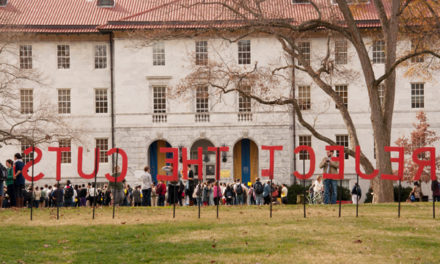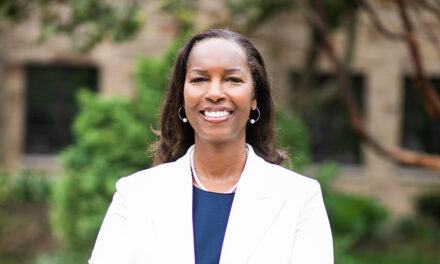United Nations Special Rapporteur David Kaye discussed internet hate speech, the platforms from which it thrives and the roles governments and companies play in its mitigation at the Emory School of Law on Monday. The lecture was part of the Law School’s annual Global Leaders Lecture series.
Kaye’s presentation outlined the difficulties in monitoring social media hate speech and highlighted the increasing prominence of the issue.
He cited the Facebook livestream of the terrorist shooting at a mosque in Christchurch, New Zealand, the spreading of rumors relating to child abduction on Whatsapp that incited mob lynchings in India and an anti-Semitic tweet directed at him as evidence of how pervasive hate speech has become.
“What to do with all this content?” Kaye asked. “I think this is one of the key public policy questions we are facing in the United States, and all around the world.”
Kaye said social media platforms, such as Twitter and Facebook, have complete authority in regulating and monitoring this content.
Kaye reported that Facebook uses algorithms and human monitors to scan social media for harmful content. The company also holds forums every other week that work to amend Facebook’s framework on free speech security and mitigate hateful content, whether that be through adjusting algorithms used to filter posts, or addressing incidents that arise during the week.
Though social media companies have internal policies to combat hate speech, Kaye said governments are seeking to adjudicate speech on these platforms.
“Governments are jealous of the power that companies have,” Kaye said. “They think that the power of deciding what is legitimate and what is not legitimate to be public is a decision for government to make.”
Kaye theorized that governments fear the ability of social media companies to provide information not in line with their plans. He explained that the government of Myanmar is particularly fearful of social media and its influence on public opinion because the people in Myanmar largely receive news information from Facebook.
Kaye listed Europol, an agency that allows police in Europe to flag posts and report them to social media companies for deletion, as another example of government legislation that regulates social media companies.
Kaye described the regulation process as an ongoing battle, with governments and social media companies vying for control. He added that even though internationally standardized policies are the clear solution to regulating online speech, the question of who should regulate speech — the government or social media companies — has yet to be resolved.
Kaye’s solution revolves around the UN Guided Principles on Business and Human Rights, and would give companies most of the legislative power in determining the framework around hate speech, as well as the responsibility for positive legislation.
“Companies should conduct a human rights impact assessment to determine whether what they are doing impacts individual rights … or anything else that might be in the corpus of human rights law,” Kaye said.
Kaye’s indictment also incorporated the individual’s right to dictate their content, positing that companies should allow their users the ability to choose filters for themselves.
“We risk allowing algorithms to make a decision without allowing humans to make a call,” Kaye said. “There needs to be humans who are part of the decision process.”
Associate Editor | Tommy Kreutz (18Ox, 21C) is from Chicago, majoring in creative writing and political science. Tommy is a published poet, whose favorite poetic reads are "Sin" by Ai, "Cortége" by Carl Philips and "A Women of Poetry" by Robyn Schiff. In his free time, Tommy furthers his own stereotype by going around campus, espousing ill-informed tirades about politics, movies and sports, to no one in particular.





